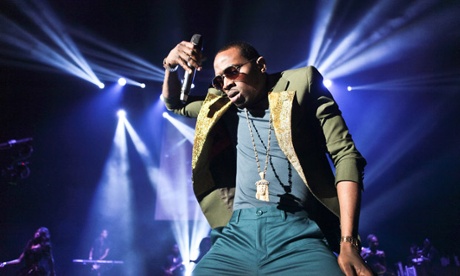
The first things that hit you when you touch down in Lagos are the humidity, the heat and the sound of Nigerian music bumping in the cars and shops. While you’re in long traffic queues, you can’t help but notice the big billboards with local artists on them all over the city. There’s energy like no other within this buzzing city of approximately 20 million people that not only churns out the music but attracts aspiring musicians from all over Nigeria.
When the originator of Afrobeat, Fela Anikulapo Kuti, first came up with Afrobeat music back in late 60s Nigeria, never would anyone have foreseen the rise of West African music to its current form. In the past few years, the young sound of Africa has managed to travel beyond boundaries: not just entertaining listeners, but creating a sense of pride about the continent. First there was music from the Congo, with rhumba spearheading the music scene in Africa, then came makossa from Cameroon, kwaito from South Africa, highlife from Ghana – and now, Afrobeats (also known as Naija beats) from Nigeria.
While Afrobeats was a term originally coined in the UK, its Afro-inspiration – or origin of the music and beat – is simply high energy and rhythmic drum patterns that make you move. One of the most popular songs from Africa in the past decade was “Premier Gaou” by Cote D’Ivoire’s Magic System, which went on to become a must-have party track in France. “African Queen” by 2Face Idibia from Nigeria has gone on to be used in movies – with its reggae feel and sweet melody, it’s become an African anthem. And all this in a period of time when urban African music started getting recognition from BBC Radio 1Xtra, the Mobos and MTV Awards as well as numerous African award ceremonies, notably the Kora Awards.
Soon after came P Square with another big song, “No One Like You“. Before you knew it, there was D’Banj from Nigeria with another hit, “Fall In Love“, which was produced by Don Jazzy, a instrumental figure in the rise of Afrobeats.
Check into the hotel and turn on your TV in Nigeria, and you’ll find more local artist videos on heavy rotation than ever before. This wasn’t the case a few years ago, but the quality of videos and the music has improved thanks to better production techniques. While CD sales and copyright laws are not as well monitored, music sales via mobile phones is the ‘in’ thing. Fans will buy ringtones and dial tones so they can hear their favourite tunes when people call. Tracks are bought from phone networks and the artists and telecom companies can make money off this as a joint venture.
A few years ago, pop was the genre of choice in Nigeria, but the current crop of artists have become superstars in their own right. Now, if an artist puts out a new tune and people like it, it will be played all over the radio and gets featured on many mixtapes. Shoot a high quality video to get more rotation and people can put a face to the music.
Audiences comes to live shows up and down the country, bringing the opportunity to make money – higher visibility leads to endorsements. Mega money also comes from other African countries that are willing to pay huge amounts to book their favourite artists: they view it as a good investment, because the biggest artists will fill stadiums everywhere they go.
The continent is a billion strong, and the wealth is enormous. The new genres of music from Africa shine a positive light on the continent which is represented by a younger, digitally-connected generation that knows no boundaries. Afrobeats is here to stay: it originates from the heart of the challenges that face the continent and, in breaking boundaries, is uniting Africa like never before. So who are some of the main players in the mix?
Tiwa Savage
One of the artists flying the flag for the ladies, with some people even saying she’s Nigeria’s answer to Beyonce. When not playing music, she hosts a TV show.
D’Banj
Surely the most interesting character in the scene, standing out from all the other pretenders thanks to his swag, energy, performance and effortless command of the stage. He’s also the first Afrobeats artist to make into the UK top ten.
WizKid
He is to Africa what Justin Bieber is to the western world. Young and likeable with an enormous fan base, he’s now one of the most notable and sought after stars from the continent.
P-Square
Peter and Paul, the twins who make up the group, have to be one of the highest grossing artists based on the continent thanks to their catchy music is catchy and their incredibly well choreographed stage shows
Davido
Davido is proof that the younger generation are a key part of the genre’s progression, with not only a track record of huge hits but also his very own viral dance move, called the Skelewu.

